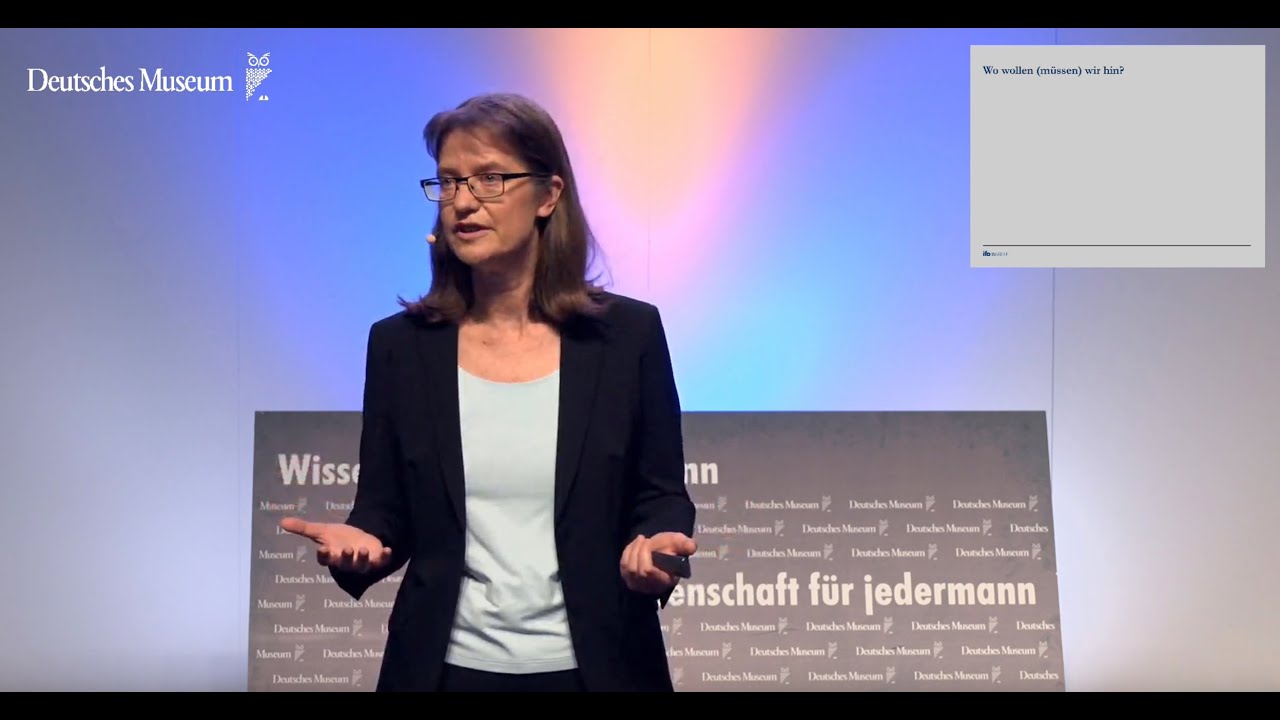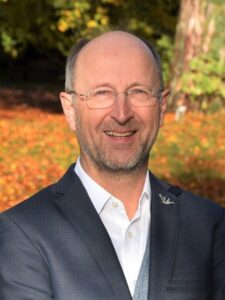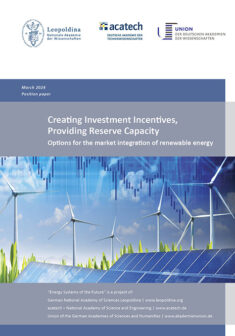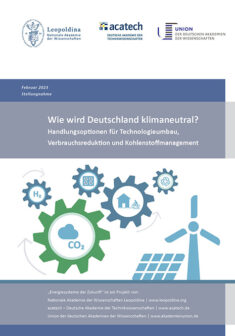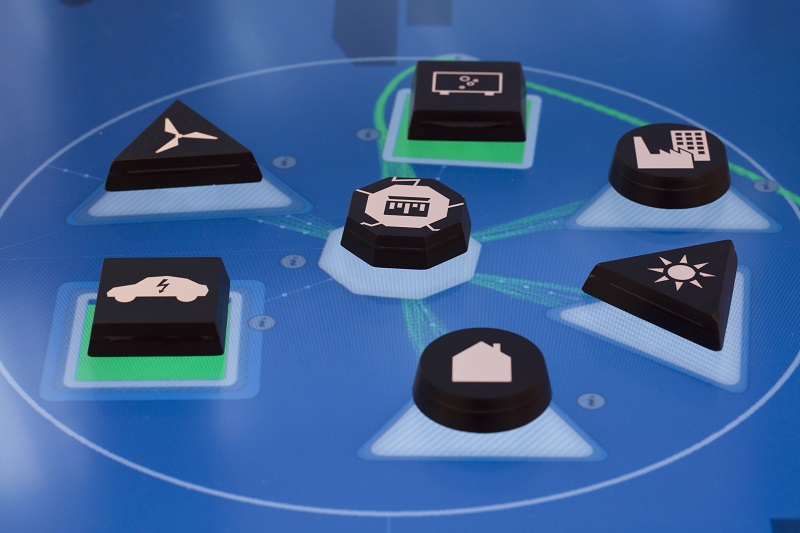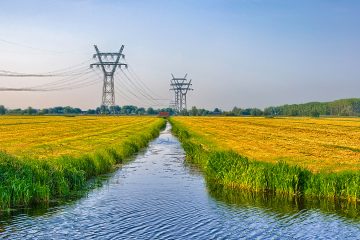What does the energy transition mean for Germany as a place to do business?
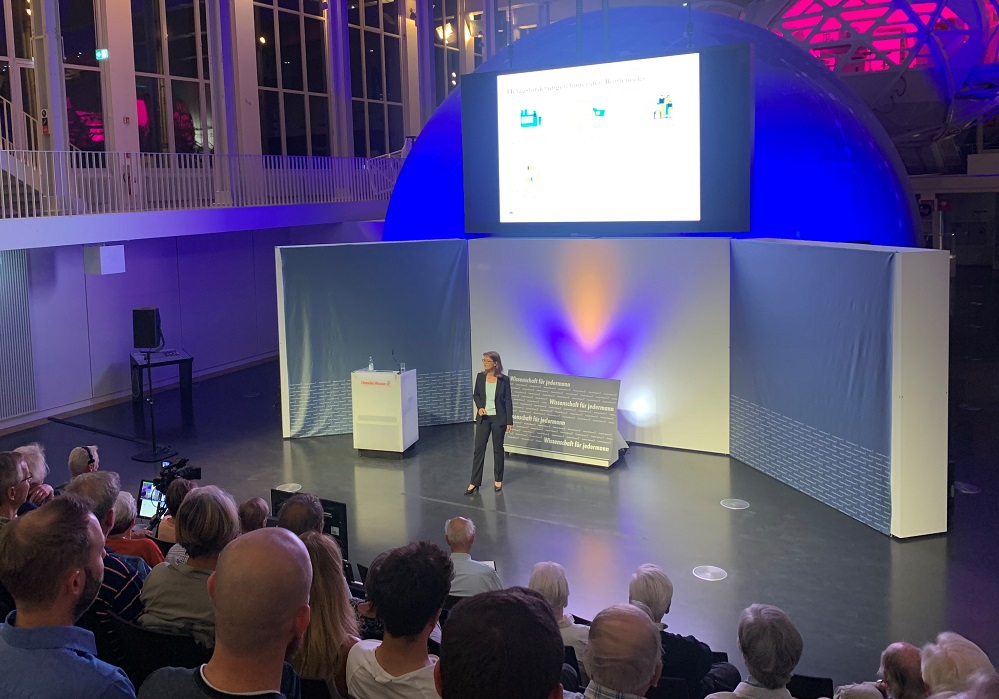
Munich, 04 October 2023
The expansion of renewable energy is immensely important for Germany’s future energy supply. What does it mean for the business destination? In what areas is further action needed? In the Deutsches Museum on 26 September, Karen Pittel, acatech Executive Board member and Director of the ifo Center for Energy, Climate, and Resources, gave some insight into the challenges facing us in the coming years and decades.
Recording of the lecture of Karen Pittel
Minute 4:00: Start of the lecture given by Karen Pittel, Director of the Center for Energy, Climate, and Resources at the ifo Institute, Professor of Economics at Ludwig-Maximilians-Universität (LMU) Munich and member of the acatech Executive Board
Duration: 1 hour 32 minutes 12 seconds
Germany has set itself the targets of reducing greenhouse gas emissions by 65% by 2030 and achieving net zero industry and society by 2045. However, it is still unclear how this can be done and what the energy mix of the future will be. One thing is certain, however: this mix must come from renewables, said acatech Executive Board member Karen Pittel at the outset of her lecture in the Deutsches Museum.
Greater consideration must be given to how this target can be reached, she said, and efforts to reduce electricity consumption must be ramped up. There are a number of ways to go about that, she continued. We must be open to the various scenarios, as different studies have shown that there is no right or wrong way. There is, in fact, a great deal of scope.
However, some sticking points exist in many areas at the moment: in the expansion of renewable energy, in the ramp-up of green hydrogen and also in the transformation of the transport and building sector. In the hydrogen sector, for example, there are plenty of projects and plans but little realisation as yet. For that reason, the notion of an energy self-sufficient Germany is very unrealistic at the moment. According to estimates, for example, up to 80 per cent of the hydrogen would have to imported in the long term. It could become a global market, said Karen Pittel.
What problems does Germany have to solve to move forward?
The economist went on to call for Germany’s international competitiveness to be strengthened. In relation to this, Karen Pittel was critical of the temporary subsidisation of electricity for sectors of industry that consume a lot of electricity: it is not just the price of electricity that makes a location attractive to businesses. Taxation, for example, also plays a role, and the tax burden for companies registered in Germany is disproportionately higher than in many other countries. Bureaucracy and regulation, too, are important factors. For instance, obtaining planning permission for new factories in Germany often takes a very long time compared with elsewhere.
Given all these challenges, solutions must be found more quickly, said Karen Pittel in conclusion, especially since there are further problems lurking behind the problems we can see. What is needed is better communication, pragmatism and a communicable long-term perspective.


